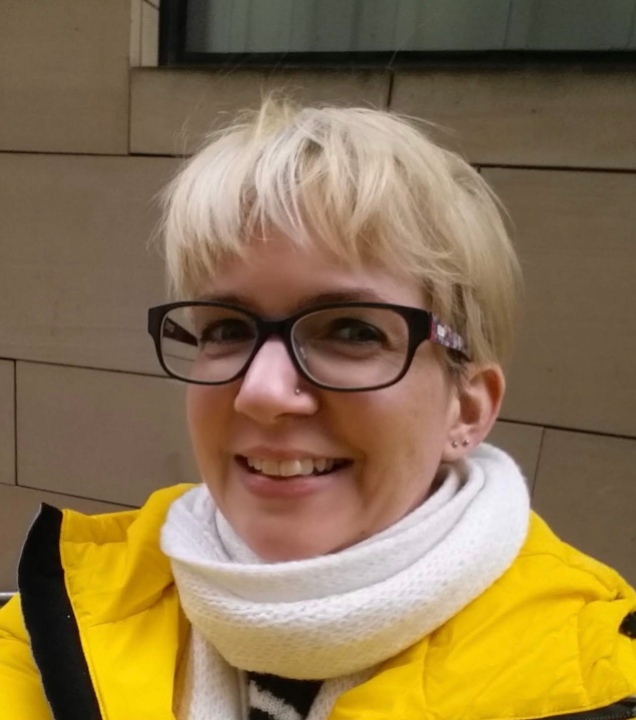It’s been interesting to see how fully and swiftly a lot of people adopt imposed rules as an entire way of being in this pandemic crisis. I’ve just joined a Facebook group for people shielding (i.e. very high-risk people who are trying to take every possible measure to avoid contracting the coronavirus), and even there, so much discussion is around whether we are “allowed” to do this or that. To my mind, the questions should be, what is the level of risk to me if I do this or that? Some people, simply because they haven’t been told otherwise, are still holding on to a forlorn hope that they will somehow be able to stop shielding after the original 12 weeks is up.
I keep thinking about Sweden, where apparently the citizens are trusted to make their own responsible choices to a large extent, based on transparent information. What has happened in our culture that we have become so dependent on being told what to do?
It sort of reminds me of religious discussions from the blogging days of old. The irony of followers of Jesus reconstructing, from his recorded words, a legalistic religiosity of the very type he tried to dismantle. The realisation that I was never going to fit in to a religious community because I couldn’t fully swallow the rules (although I gave it a good try).
I have some difficulty swallowing the current rules, too. Why can’t I have a picnic or sunbathe in a park, if I can do this without getting anywhere near anyone and evidence indicates transmission risk outdoors is very low anyway? The Scottish Government has already recognised that allowing unlimited outdoor exercise – as opposed to just one spell a day – should make “very little difference” to the infection rate. It seems to me the benefits of outdoor freedoms are huge and the risks are relatively tiny.
As restrictions start to be eased, rules become more and more complicated and harder to make sense of, as this Facebook post (I’ll put a screenshot at the bottom of the post) illustrates well. I’m not saying the UK Government couldn’t have been clearer on Sunday, but it seems obvious we’ll experience more confusion the more we move away from “stay at home” but still expect clear rules for everything.
The current mood in my social media circles is very much one of fear: give us rules, keep up restrictions, clamp down, get this situation fully under control. But what control? As I wrote previously, I’m scared of the fucking virus, but I’m also really scared we will lose too much – outdoor freedoms being the very least of it – by trying too hard to suppress what might be insuppressible. What exactly are we hoping for? As someone wrote in a public post yesterday, “we were never going to social distance this thing into nonexistence”…
I get a great sense of calm from listening to Anders Tegnell and Johan Giesecke. I hear them say the Swedish curve has flattened, even with more moderate social distancing, and this is partly due to the development of some immunity in a significant chunk of the population. I feel that’s good news, if true. And I do feel it makes some sense. Sweden’s deaths per capita aren’t the worst – and Giesecke’s constant refrain anyway is to wait a year before comparing countries (his belief is there will not be much difference by then). Care homes have been a problem everywhere and lockdown hasn’t really helped them.
I also like the UnHerd YouTube channel for its in-depth discussions and interesting variety of interviewees with different expertise. A German virologist gave the most reassuring story I’ve heard about how the virus might become something we can live with, even in the absence of a vaccine (there has been no successful vaccine developed against any other coronavirus) and without necessarily lifelong immunity following infection. He also finds evidence the virus has spread further than official estimates, and the fatality rate is correspondingly smaller.
I suppose I find all this comforting because if they are right, maybe this crisis will all be over sooner than we think. The UK’s horror story of 40,000+ deaths by now – according to these hypotheses – at least reflects enough infections in the population to have produced a decent amount of immunity. So while nothing can take away the tragedy that has happened, maybe the process of opening up will be easier than everyone fears. I certainly prefer that idea to the prevailing conception that our only way to meaningfully un-pause society without risking a horrific flare-up is a vaccine that may or may not be possible to develop.
I guess we all have to find some comfort somewhere, some hope.




Pingback: Tuesday 12 May – Masks and Rainbows